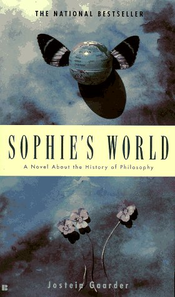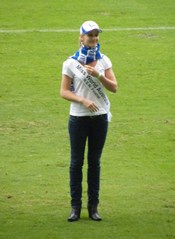Sophie's Matrix, essay on Jostein Gaardner's Sophie's World
Jostein Gaarder created a relatively concise history of philosophy in his book Sophie's World in which he masterfully weaved through important philosophical questions regarding human life as a part of our world and the entire universe. The unique ending of the novel promulgates the idea that our knowledge of the world is extremely limited and going beyond our limitations is essential; however knowing too much can create a different existence with its own negative aspects.
As we go through Sophie's World, we are told the story of Sophie Amundsen and her philosophy teacher, Alberto Knox, who are stripped of their existence as real people when they realize that they are simply characters in the mind of a U.N. Battalion major - Albert Knag - writing a book as a present for his daughter's fifteen-year-old birthday. Sophie's world is merely a dreamlike existence in the major's imagination and Sophie herself is comfortably "asleep" in a pod, unaware of the true nature of reality or life.
The irony is even greater when we see that her whole course of philosophy emphasized not being part of the majority who surrendered to the world and didn't dare to question it. Alberto writes in one of his letters, "We who live here are microscopic insects existing deep down in the rabbit's fur. But philosophers are always trying to climb up the fine hairs of the fur in order to stare right into the magician's eyes." (Gaardner, 14) This suggests to Sophie that a real philosopher will never get used to the world no matter how comfortable it seems and will be inquisitive as to gain more knowledge or at least understanding. Many philosophers hold the belief that the only thing we know for sure in our world...



The matrix
Hum.... which one? Matrix one two or three? ehhehe... doesnt matter. Anyway, nicely put. You have considered the possablity of the movie relating to real life and analzed the movies impact well. Also the start paragraph shows that you have done your research. A biblography would have been nice, but.... nice job!
2 out of 2 people found this comment useful.